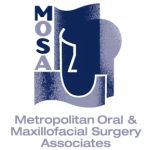How to Detect and Prevent Oral Cancer: Early Detection and Prevention Tips
Oral cancer is a serious health issue that many people don't think about until it's too late. However, early detection can significantly improve the prognosis for those affected. As someone who's personally been through the scare of a potential diagnosis, I can tell you that catching oral cancer early makes all the difference. In this article, I’ll guide you through how to detect the signs of oral cancer and offer prevention tips that can help reduce your risk of developing it.
- Understanding Oral Cancer
- Recognizing the Signs and Symptoms
- How to Prevent Oral Cancer
- Available Treatment Options
- My Personal Experience with Oral Cancer
1. Understanding Oral Cancer
Oral cancer refers to cancers that develop in the mouth or throat. It can start in the lips, gums, tongue, inner cheeks, and the roof or floor of the mouth. This type of cancer is often linked to lifestyle habits, such as smoking, excessive alcohol consumption, and poor diet. Oral cancer can also be linked to the human papillomavirus (HPV), which is a growing concern. The earlier you catch it, the higher the chances of successful treatment.
2. Recognizing the Signs and Symptoms of Oral Cancer
When it comes to oral cancer, early detection is critical. Being aware of potential warning signs can help you catch the disease in its early stages when it’s most treatable. Common signs of oral cancer include:
- Persistent mouth sores or ulcers that do not heal
- Red or white patches in the mouth or throat
- Unexplained bleeding in the mouth
- Difficulty chewing, swallowing, or speaking
- Persistent sore throat or feeling like something is caught in your throat
- Loose teeth or changes in your bite
- Unexplained weight loss or fatigue
If you notice any of these symptoms, it’s important to see a dentist or doctor as soon as possible. Oral cancer can sometimes be painless in its early stages, so don't wait for pain to be the signal that something is wrong. A regular checkup with your dentist can help spot issues early on before they develop into something more serious.
3. How to Prevent Oral Cancer
While some risk factors for oral cancer, like genetics and HPV, are beyond our control, many factors are preventable. Here are some lifestyle changes and precautions that can help reduce the risk:
- Avoid Smoking and Tobacco Products: Smoking and tobacco use are the leading causes of oral cancer. Quitting smoking can drastically reduce your chances of developing the disease.
- Limit Alcohol Consumption: Drinking alcohol excessively is a well-known risk factor for oral cancer. Moderation is key, and reducing alcohol intake can lower your risk.
- Maintain Good Oral Hygiene: Brushing and flossing regularly, along with visiting the dentist for routine checkups, helps keep your mouth healthy and may prevent conditions that lead to oral cancer.
- Eat a Healthy Diet: A balanced diet rich in fruits and vegetables can help protect against various cancers. Foods high in antioxidants can help fight free radicals, which damage cells and lead to cancer.
- Get Vaccinated for HPV: The HPV vaccine can prevent certain types of HPV infections that increase the risk of oral cancer. Consult with your healthcare provider about vaccination options.
4. Treatment Options for Oral Cancer
If you're diagnosed with oral cancer, there are several treatment options available, and the best one depends on the stage and location of the cancer. The primary treatment methods include:
- Surgery: Removing the tumor or affected area is a common option for early-stage oral cancers.
- Radiation Therapy: Radiation is often used after surgery or for tumors that are not amenable to surgical removal.
- Chemotherapy: Chemotherapy is sometimes used for advanced cancers, either alone or in combination with surgery and radiation.
- Targeted Therapy and Immunotherapy: These newer treatments aim to specifically target cancer cells while sparing healthy tissue.
5. My Personal Experience with Oral Cancer
I'll never forget the moment when my dentist first mentioned the possibility of oral cancer. I had noticed a persistent sore in my mouth that wouldn’t heal, and I had been putting off going to the dentist because I thought it was just a canker sore. Fortunately, the early detection meant that I didn’t need aggressive treatment. This experience taught me the importance of paying attention to the smallest changes in my mouth and getting regular checkups. I want others to learn from my story and stay proactive about their oral health.
Early detection of oral cancer is truly life-saving, and by making small changes in your lifestyle, you can drastically reduce your risk. Whether it’s maintaining good oral hygiene, avoiding tobacco and alcohol, or eating a balanced diet, these steps can make a world of difference.
If you're looking for more tips on how to improve your oral health and protect yourself from serious issues like oral cancer, explore some of the products and services offered at [Chinese Food] for healthy living and dental care. Regular checkups with your dentist can help keep your oral health in check, so don’t wait until it’s too late!







 Associated Dentists4.0 (651 review)
Associated Dentists4.0 (651 review) Doc Bresler's Cavity Busters4.0 (524 review)
Doc Bresler's Cavity Busters4.0 (524 review) Pinnacle Peak Endodontics5.0 (2 review)
Pinnacle Peak Endodontics5.0 (2 review) Tend East Nashville4.0 (319 review)
Tend East Nashville4.0 (319 review) Bright Now! Dental & Orthodontics4.0 (221 review)
Bright Now! Dental & Orthodontics4.0 (221 review) Metropolitan Oral and Maxillofacial Surgery Associates4.0 (365 review)
Metropolitan Oral and Maxillofacial Surgery Associates4.0 (365 review) The Importance of Oral Health Education During Pregnancy for a Healthy Pregnancy
The Importance of Oral Health Education During Pregnancy for a Healthy Pregnancy Best Tips for Brushing Your Teeth Properly for Healthy Gums: Essential Techniques for Oral Health
Best Tips for Brushing Your Teeth Properly for Healthy Gums: Essential Techniques for Oral Health Why Skipping Dental Checkups Can Lead to Bigger Oral Health Problems
Why Skipping Dental Checkups Can Lead to Bigger Oral Health Problems Advantages of Porcelain Dental Restorations
Advantages of Porcelain Dental Restorations How Can Diabetes Cause Tooth and Gum Problems? Preventing and Managing Oral Health Issues
How Can Diabetes Cause Tooth and Gum Problems? Preventing and Managing Oral Health Issues Healthy Habits for Promoting Good Oral Health and Hygiene: Tips for a Healthy Smile
Healthy Habits for Promoting Good Oral Health and Hygiene: Tips for a Healthy Smile